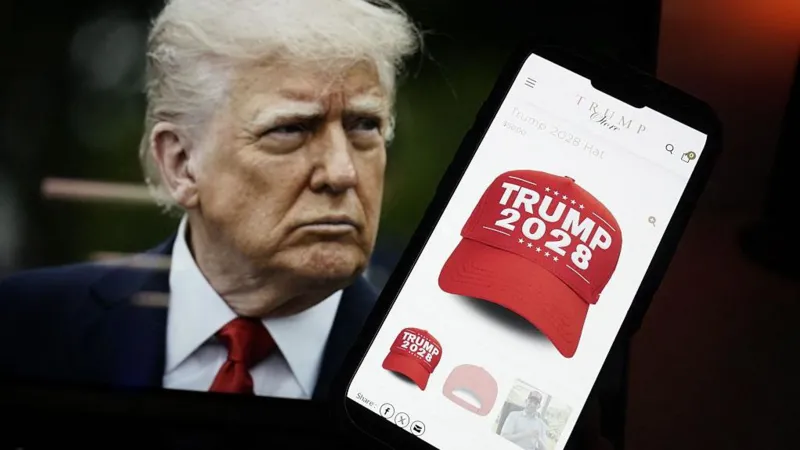Former US President Donald Trump has sparked new controversy after suggesting he would “love” to serve a third presidential term. The speculation comes as his campaign begins selling “Trump 2028” caps, fueling debates about whether such a scenario is even possible under the US Constitution.
Charlie Kirk Murder Case: Judge Allows Suspect Tyler Robinson to Wear Civilian Clothes in Court
Trump’s Hints at a Third Term
In a recent interview, Trump said he has “the best poll numbers” and did not rule out the idea of running again in 2028, after his current second term would have ended. He has previously joked—or hinted—about serving “three or four times,” statements that have drawn both media attention and constitutional scrutiny. Earlier this year, his campaign store began selling $50 red “Trump 2028” hats, signaling a potential teaser for another campaign.
Why Is Trump Talking About a Third Term?
The topic resurfaced after Trump’s former strategist Steve Bannon claimed that a “plan” was being developed to secure Trump a third term in office. Trump’s remarks in response — that he’d “love to do it” — have intensified speculation about whether there’s a legal path for him to return to the White House again after two terms. However, Trump himself has also dismissed the idea at times, calling it “too cute” and saying “it wouldn’t be right.”
What the US Constitution Says About Presidential Term Limits
The 22nd Amendment to the US Constitution, ratified in 1951, clearly limits the presidency to two elected terms. It states: “No person shall be elected to the office of the President more than twice.” This means no one — including Donald Trump — can legally be elected president more than two times. Amending the Constitution would require a two-thirds vote in both the Senate and the House of Representatives, and ratification by three-quarters of state legislatures. Currently, Trump’s Republican Party does not hold such overwhelming majorities, making a constitutional change extremely unlikely.
Could Trump Return Through a “Loophole”?
Some Trump supporters claim a constitutional loophole could allow him to serve again — just not by direct election. Their theory suggests Trump could run as vice president alongside another candidate, possibly JD Vance. If that ticket won and the president then resigned, Trump could assume office by succession. However, legal experts overwhelmingly reject this idea.
Legal Experts Say: No Third Term Possible
Constitutional scholars have been quick to dismiss the “loophole theory.” Derek Muller, an election law professor at the University of Notre Dame, points to the 12th Amendment, which states that no person ineligible for the presidency can serve as vice president. That means anyone who has already served two terms cannot become vice president — closing off that potential workaround. Similarly, Jeremy Paul of Northeastern University told CBS News there are “no credible legal arguments” supporting a third Trump term.
Has Any US President Served More Than Two Terms?
Only one US president, Franklin D. Roosevelt, ever served more than two terms. Elected four times during the Great Depression and World War II, Roosevelt died early in his fourth term in 1945. His presidency led directly to the 22nd Amendment, which officially set the two-term limit that remains in effect today.
Political Reactions to Trump’s Third-Term Talk
Democrats have condemned Trump’s comments, calling them dangerous to democracy. Representative Daniel Goldman said, “This is yet another escalation in his clear effort to take over the government and dismantle our democracy.” Even some Republicans disagree with the idea. Senator Markwayne Mullin of Oklahoma stated, “I’m not changing the Constitution unless the American people choose to do that.” Congressman Tom Cole also dismissed the notion as “too fanciful to really discuss seriously.”
Conclusion
While Donald Trump’s “Trump 2028” merchandise may fuel speculation, the US Constitution firmly limits any president to two elected terms. Legal experts agree there’s no valid pathway — loophole or otherwise — for Trump to serve a third term under current law. Unless the 22nd Amendment is changed, Trump’s political influence will remain powerful — but his presidency will end after two terms.


1 thought on “Can Donald Trump Serve a Third Term as US President? The Facts Explained”